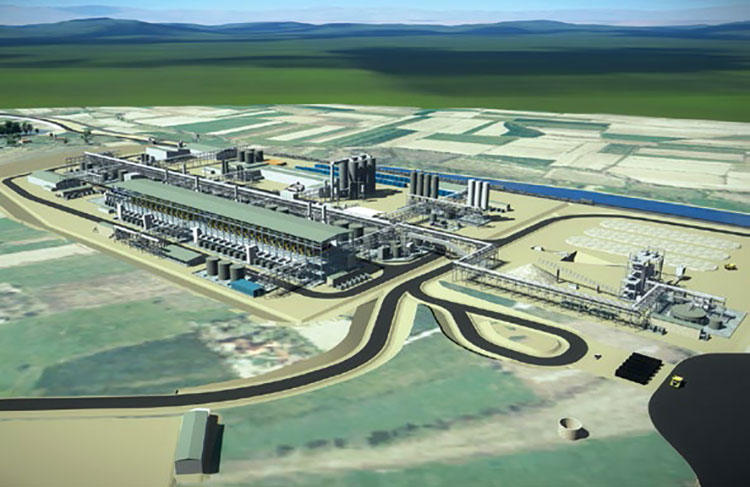Rio Tinto has committed $2.4 billion to the Jadar lithium-borates project in Serbia, one of the world’s largest greenfield lithium mining and processing projects. The project remains subject to receiving all relevant approvals, permits and licences and ongoing engagement with local communities, the Government of Serbia and civil society. The Jadar project would scale up Rio Tinto’s exposure to battery materials, and demonstrate the company’s commitment to investing capital in a disciplined manner to further strengthen its portfolio for the global energy transition.
Jadar will produce battery-grade lithium carbonate, a critical mineral used in large scale batteries for electric vehicles and storing renewable energy, and position Rio Tinto as the largest source of lithium supply in Europe for at least the next 15 years. In addition, Jadar will produce borates, which are used in solar panels and wind turbines.
Jadar will be one of the largest industrial investments in Serbia, contributing 1% directly and 4% indirectly to GDP, with many Serbian suppliers involved in the construction of the mine. Rio Tinto says it is committed to help develop local businesses so that they can support the operation over the coming decades. It will also be a significant employer, creating 2,100 jobs during construction and 1,000 mining and processing jobs once in production.

Rio Tinto Chief Executive Jakob Stausholm said: “We have great confidence in the Jadar project and are ready to invest, subject to approvals. Serbia and Rio Tinto will be well-positioned to capture the opportunity offered by rising demand for lithium, driven by the global energy transition and the project will strengthen our offering, particularly to the European market. It could supply enough lithium to power over one million electric vehicles per year.”
He adds: “The Jadar deposit and its unique mineral, jadarite, discovered by Rio Tinto geologists in 2004 contains high-grade mineralisation of boron and lithium, supporting a long-life operation in the first quartile of the cost curve for both products. We are committed to upholding the highest environmental standards and building sustainable futures for the communities where we operate. We recognise that in progressing this project, we must listen to and respect the views of all stakeholders.”
Rio Tinto says it continues to work with a wide group of local and global experts across all aspects of the environmental, social and governance impacts and has done so for many years. “For example, to date we have finalised 12 environmental studies and more than 23,000 biological, physical and chemical analyses of air and water. This consultation is ongoing and will continue to inform our final submissions for approval.”
The Jadar development will include an underground mine with associated infrastructure and equipment, including electric haul trucks, as well as a beneficiation chemical processing plant. To minimise the impact to communities, it will be built to the highest environmental standards, including utilising dry stacking of tailings. This innovative method allows the dry tailings to be progressively reclaimed with vegetation and soil with no need for a tailings dam. Water management will be state of the art with a dedicated facility resulting in approximately 70% of raw water coming from recycled sources or treated mine water.
First saleable production is expected in 2026 at a time of strong market fundamentals with lithium demand forecast to grow 25-35% per annum over the next decade. Following ramp up to full production in 2029, the mine will produce ~58,000 t of lithium carbonate, 160,000 t of boric acid (B2O3 units) and 255,000 t of sodium sulphate annually, making Rio Tinto one of the top ten lithium producers in the world. Based on this annual production of lithium carbonate, Rio Tinto aims to produce 2.3 million tonnes of lithium carbonate over the expected 40-year life of mine.
The next steps for the project are seeking an exploitation licence and receipt of regulatory approvals. This includes approval of the environmental impact assessment (EIA) studies, which will shortly be made available to the public for comment. The EIA is required for the commencement of works, with construction targeted to start in 2022.